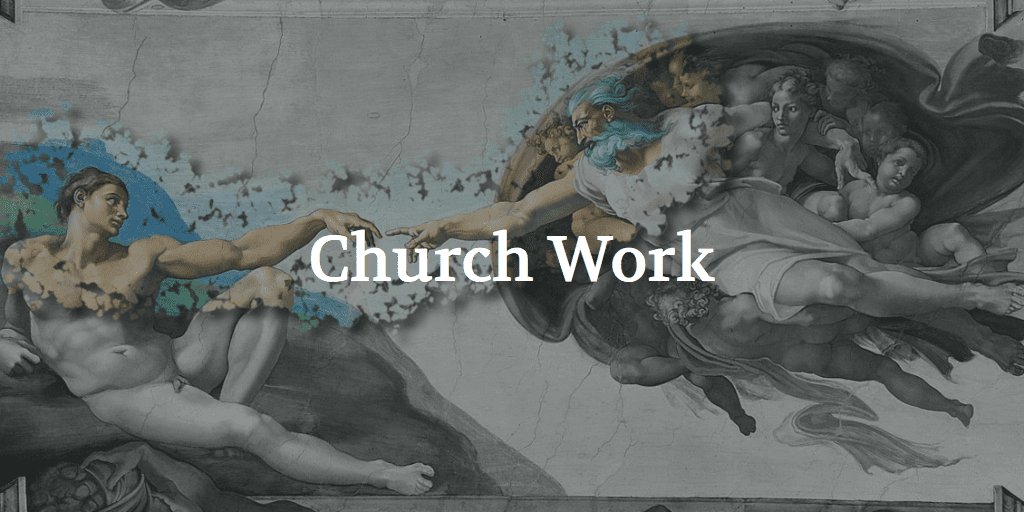 This is another post in a Friday series on practical ministry tips and tools. For the next few weeks we will have a few different people sharing tips on how to do a funeral. The following is a guest post by Josh Graves on the Theology of Funerals. Josh serves as the Preaching Minister at the Otter Creek Church of Christ in Nashville.
This is another post in a Friday series on practical ministry tips and tools. For the next few weeks we will have a few different people sharing tips on how to do a funeral. The following is a guest post by Josh Graves on the Theology of Funerals. Josh serves as the Preaching Minister at the Otter Creek Church of Christ in Nashville.
The Christian funeral is a sacred moment when people of faith (because all people are technically people of some sort of faith) come together to make sense of their lives, God, and perhaps what lies beyond death. Some practical theological observations for the minister and leader serving the role of pastor or officiate. Jonathan asked me to frame the theology, so I’ll refrain from chasing other paths.
1. The body matters in Christian theology. Despite what some of our old and new worship music suggests, the body matters as much as the soul. In I Cor. 15, for instance, Paul saves his theology of resurrection and the body as the antidote for the disease of destruction and divisiveness plaguing the Christian communities in Corinth. A proper understanding of the body and the future of the kingdom of God.
In fact, Jesus bodily resurrection is an inauguration or a new commentary of God’s ultimate hope for the body. During Jesus’ earthly ministry, he says, in Luke, he’ll refrain from taking the Lord’s Supper (a bodily activity) until all people are with him at the great banquet party (Lk. 22:17). Jesus wasn’t a ghost or hologram. He was a resurrected Jewish prophet, the son of God, who definitively embodied God’s passion to redeem creation and the bodies within it. After all, it’s in these bodies that God made us in God’s own image.
God has vested interest in something that ultimately connects back to God. This is not to suggest that “cremation” is a sin. God made you from dust once, God will do it again. But, having the body present is helpful in talking about resurrection. It’s difficult to evoke the imagination of resurrection without a body.
2. Encourage and model the reality that grief is as diverse as New York City. Stoics need to stew. Extroverts need to pour out their memories, feelings, hearts. Servants need to do something to honor the deceased. The important thing is to remind people, in the funeral moment, that it’s not so much how you grieve but that you grieve.
Scientists can detect a substantive difference between tears that come from common experience (onions) and the tears of raw emotion. Literally, tears are cleansing to the soul. What soap does for the body, tears do for the soul. Sacred Hebrew and Christian scriptures attest to this. Psalm 56:8 tells us that God desires to record every tear we shed. For when we are so sad that we are moved to tears, the very action of crying is comforting.
So Paul writes in 2 Cor. 2:4 “For I wrote to you out of great distress and anguish of heart with my many tears, not to grieve you but to let you know the depth of my love for you.” Paul’s tears were from the deep places of mourning in his own heart. Mourning—the deliberate grieving, crying, processing, and sharing of shame, pain, and loss—is the means by which we curiously take on the strength of that which we overcome.
The White Church in America probably struggles the most with knowing how to grieve. The technical diagnosis: We are too proud.
3. North Americans live in denial of death. We are hyper-fixated on avoiding the appearance of death. We nip this. Tuck that. Botox here. Lift there. We search for the fountain of life hoping we’re the exception from the appearance of dying. That is, we know we are going to die, we just want to convince others that we don’t appear like we are capable of such a thing as death. We will defy it. We will pretend like we can “out smart” death. Funerals are a moment in which we graciously (or surgically) present people with the brevity and gift that is life. I’ve read somewhere that some monks leave an open grave on their campus as a reminder that someone is next.
4. The most meaningful funerals are the ones that remind us that death, in the end, is a semi-colon and not a period. There is a fine line between optimism and denial. As a person invested in the Jesus Story I am interested in neither downplaying the troubles of this world nor do I want to give into the notion that this is all there is. I want to live with one foot on earth and one foot in heaven.
I want to explore how this life now is connected to the life to come, “the renewal of all things” Jesus refers to in Matt. 19:28. The best moments in this life (the birth of your children, the wedding, the moment when you realize God made Niagara Falls) are small compared to the moments Jesus has in store in the New Heavens, the New Jerusalem.
Death reminds us that we do not ever lose control, we lose the illusion that we were ever in control to begin with. To die is to let go, and trust that the God who spoke you into being is going to see you through into the next great chapter of life. The life that will not end.









